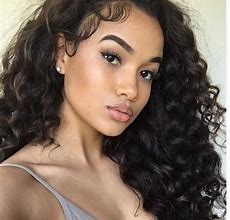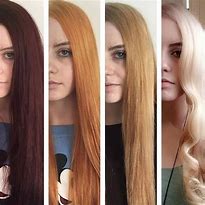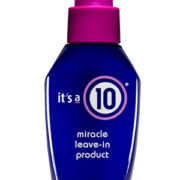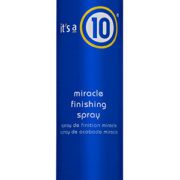Am I ready for a Transition? And Can I Color?
Transitioning from heat-damaged, chemically over processed hair can be a lengthy, overwhelming process, but if you take the right steps to achieve healthy hair it doesn’t have to be as treacherous.
Transition
[tran-zish-uh n, -sish-]
Word Origin noun
1. movement, passage, or change from one position, state, stage, subject, concept, etc., to another; change:
Applied to the curly world its getting back to your TRUE state, allowing your curls to flourish and do what they were naturally meant to do. Forgoing over manipulation from outside sources.
Natural hair is damaged when it is excessive colors are processed or high heat styling is constantly added to it with out using enough protective measures.You risk loosening your curl pattern if coloring products are to harsh or overlapped where they don’t need to be (particularly box dye). Flat ironing and curling irons are usually the culprits of heat damage. Constant heat also deters the transition process because you literally stretch out your natural hair pattern and elongate the elasticity. This can sometimes result in permanent damage.
Although there are safer ways to chemically process your hair, you are still taking a risk when doing so. Using box dye can be hit or a miss, depending on the peroxide level and your curls porosity and how you take care of it afterwards. Using treatments like the Olaplex Bond Multiplier while coloring fragile hair, can help ease your curls into a coloring process.
Transitioning can be achieved with a few different methods the most important for ALL methods is doing a weekly deep treatment (one without lots of protein) after 3 treatments you will be able to see what’s not recoverable.
Method 1.Grow out the problem areas and get trims every 3 months until its gone. Your stylist recognizing what’s not recoverable is important with this method and offering you new shape options.
2.Getting a #big chop which takes off most of the damaged area to start fresh and new. The benefit is you know its all gone and the hair grows very quickly due to lack of split ends.
3.Last but not least you can also do it with color. A clear gloss or a treatment that is semi permanent can help hydrate curls and give a glossy finish while the hair repairs and regains more moisture and elasticity. This would need to be maintained monthly to retain shine.
After the road of transition comes the journey of maintenance. Maintenance can be tricky if not done properly. For instance, something as small as using a microfiber towel instead of a regular towel can make all the difference. Unlike microfiber towels, regular towels have a rough material which dry your curls out and make them frizzy. Once you’ve mastered the tips and tricks of maintenance, now comes the finding the best product for you. Based on where your hair falls on the curly hair chart (check out Different curl types and how they work) it becomes easier for you to find the products that best fit your hair type.
Once you’ve grown out or repaired your damaged hair, now comes the time to be a little more flexible and have fun (in moderation. If you have been thinking about dying your hair but might be scared due to what can go wrong, there’s actually good news for you. By doing your research and finding salons that specialize in curly hair, you can find a good stylist that will make your natural hair pattern a priority. It’s also a good idea to follow curly hair influencers and curly salons on Instagram. You’ll be able to read or watch reviews along with other curly hair influencers and get a more in-depth commentary on coloring services.
Curly hair stylists should know that certain measures must be taken when coloring hair as well as better products to use. If you are at a salon that doesn’t specialize and feel your hair is at risk- don’t be afraid to tell your stylist. Communication is key when changing your hair and understanding the process and risks of the color you choose. A high-lift blond will be more damaging to the curl pattern than a single process followed with a glaze. You can always ask for a deep treatment after your color service.
Realistic expectations are key. There is a chance that you might not obtain the hair color you want on the first try. You might have to do two or three or four sessions of coloring to get the look you want to reach the desired color “safely”. The best way to prevent too much coloring at once is spacing out the time you dye your hair. You should wait about 6 weeks to ensure that the color settles in with your hair. It also makes it less nerve wracking knowing you waited a good amount of time to risk your hair again. Make sure to constantly deep condition at least once a week and use sulfate free hair products, especially shampoo. Using shampoo with sulfates will strip your hair color and give it a copper tone (if you added blonde to it). Always read the labels on your hair products and even conduct some extra research if you aren’t too sure if the ingredient is good for your hair.
If you add heat from time to time, try to keep it to a minimum because you don’t want to burn parts of your hair that are already colored. Styling with a hood dryer or diffuser is perfectly fine on a regular basis as these tools never get hot enough on their own to burn the hair. The only time we have seen “diffuser damage” is when someone has been using a lot of alcohol mousse and hairspray and adds in diffuser heat on high. Its not really the diffuser but the product choice drying out the hair. High heat tools include a blow dryer put directly on the hair (usually with a brush) flat iron and curling irons. As long as you know your hair and keep up with the maintenance, having color in it will never be a nightmare. It is recommended to stay up informed and use your curl stylist for recommendations of the right products for your texture, its what they are there for. Also follow and stay up to date with the natural hair community (mainly on social media) in order to learn new things and possibly find new products that will benefit your newly colored hair. Just keep in mind a influencer might have a different texture than you and recognizing their product choices may not be the best for you is important. Follow us for education – specials – recommended products curl_evolution





